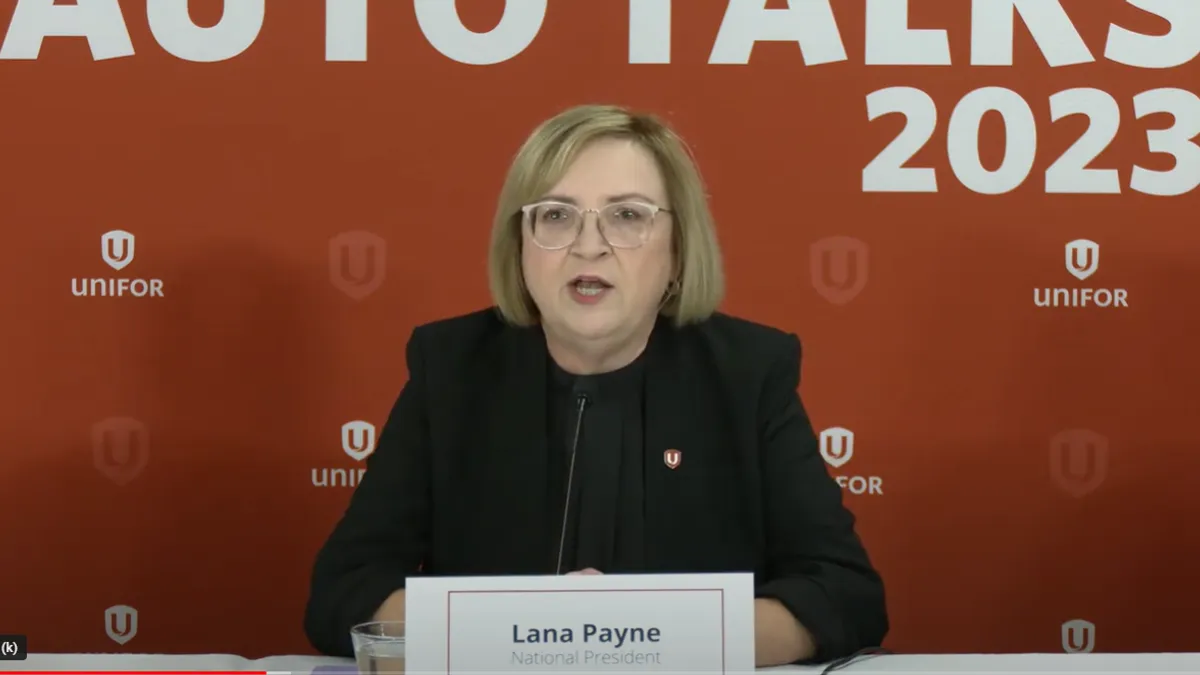Dive Brief:
- Unifor, a union representing 18,000 autoworkers in Canada, has rejected two “economic offers” from Ford Motor Co., Unifor National President Lana Payne said Thursday during an information session about the union’s collective bargaining efforts with the Big Three automakers.
- Unlike the United Auto Workers union, Unifor will not share the details of the initial offers publicly.
- Negotiations will continue over the weekend, Payne said. Unifor’s collective bargaining agreements with General Motors, Ford and Stellantis expire Monday.
Dive Insight:
Unifor is targeting Ford as it negotiates a new collective bargaining agreement with the Big Three automakers. After the union negotiates a contract with Ford, it will use that agreement as a blueprint for renegotiating labor contracts with GM and Stellantis. Unifor’s top collective bargaining priorities include pension and wage package improvements, electric vehicle transition supports and “investments,” Payne said.
Unifor members employed in Canada by GM, Ford and Stellantis in August voted overwhelmingly to strike if the union can’t make a deal with the Big Three by Monday’s deadline.
Ford’s initial offers “did not come close to meeting our expectations,” Payne said, adding that bargaining with GM and Stellantis will remain on hold until Unifor’s members ratify an agreement with Ford.
“Things are moving, but we are certainly not there yet,” Payne said.
Experts say a Unifor strike in Canada would disrupt the U.S. auto industry because the countries’ automotive supply chains are closely intertwined.
Unifor is following the same pattern bargaining strategy the UAW has used historically in its negotiations with the Big Three. In contrast, the UAW is negotiating with all three automakers simultaneously. On Friday, the UAW went on strike after failing to reach labor agreements with GM, Ford and Stellantis by its Sept. 14 deadline.
Payne said the union decided not to share the details of Ford’s offers because Unifor’s leadership thought it would “harm” the negotiations.
“In any round of contract talks, as you know, there are many offers passed back and forth, with details of those offers constantly changing,” Payne said. “One offer might not look like the next, and without the added context of actually participating in the constant negotiations, there can be misunderstanding and confusion.”














